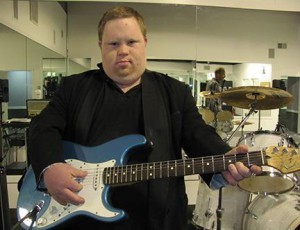The Australian author Colleen McCullough died at age 77. The obituary in The Australian begins as follows:
COLLEEN McCullough, Australia’s best selling author, was a charmer. Plain of feature, and certainly overweight, she was, nevertheless, a woman of wit and warmth. In one interview, she said: “I’ve never been into clothes or figure and the interesting thing is I never had any trouble attracting men.”The writer began the obituary by saying, basically, that she was unattractive and fat, but men still wanted to have sex with her and she was fun to be around.
This is, of course, sexist - it suggests that the first judgment of a woman must be to what extent she was or was not attractive to men.
We've been through this before. It reminded me (and no doubt many others), of the New York Times obituary of Yvonne Brill, rocket scientist. It began (it has since been edited, but the public editor commented here):
She made a mean beef stroganoff, followed her husband from job to job and took eight years off from work to raise three children. “The world’s best mom,” her son Matthew said.Here it's not to what extent did people want to have sex with her in general, but her maternal skills in the kitchen and child-rearing.
But Yvonne Brill, who died on Wednesday at 88 in Princeton, N.J., was also a brilliant rocket scientist who in the early 1970s invented a propulsion system to keep communications satellites from slipping out of their orbits.
I wrote about Brill a few years ago when I put together a piece for CNN on the sexism my daughter was encountering as a four-year old. I wrote:
When the rocket scientist Yvonne Brill died in March,The New York Times celebrated her as the maker of a "mean beef stroganoff" and "the world's best mother." When my 4-year-old daughter, Ellie, a wildly creative and interesting girl, finished a year of preschool last week, her teachers gave her an award for being the best dressed.This is cradle-to-the-grave sexism, always judging women by their appearance and the extent to which they do or do not conform to the gender roles assigned them by patriarchal norms. No accomplishment is as important as whether they were attractive. And read this explanation by the Times' obituary editor on Brill.
“I’m surprised,” he said. “It never occurred to us that this would be read as sexist.” He said it was important for obituaries to put people in the context of their time and that this well-written obituary did that effectively. He also observed that the references in the first paragraph to cooking and being a mother served as an effective setup for the “aha” of the second paragraph, which revealed that Mrs. Brill was an important scientist.And the writer himself:
The writer, Douglas Martin, described himself as “just so full of admiration for this woman, in all respects.”For these two male writers (I'm guessing white male, but I don't know them), the backlash was a surprise and unwarranted. They just wanted a good, "aha!" That, too, is a bow to patriarchy. Mother AND rocket scientist, aha! You never saw that coming, as most scientists are terrible mothers, and vice versa (the article suggests). The use of the surprise there reinforces the idea that such achievements are unusual.
“I was totally captivated by her story,” he said, and he looked for a way to tell it in as interesting a way as possible. The negative reaction is unwarranted, he said — a result of people who didn’t read the obituary fully but reacted only to what they saw on Twitter about the opening paragraph.
It hasn’t changed his mind about how he wrote it: “I wouldn’t do anything differently.”
 |
| Blank Gravestone. Blah. |
So instead we look at these obituaries. Fabulous, successful, women who cannot be remembered except through the context of patriarchal gender roles.










